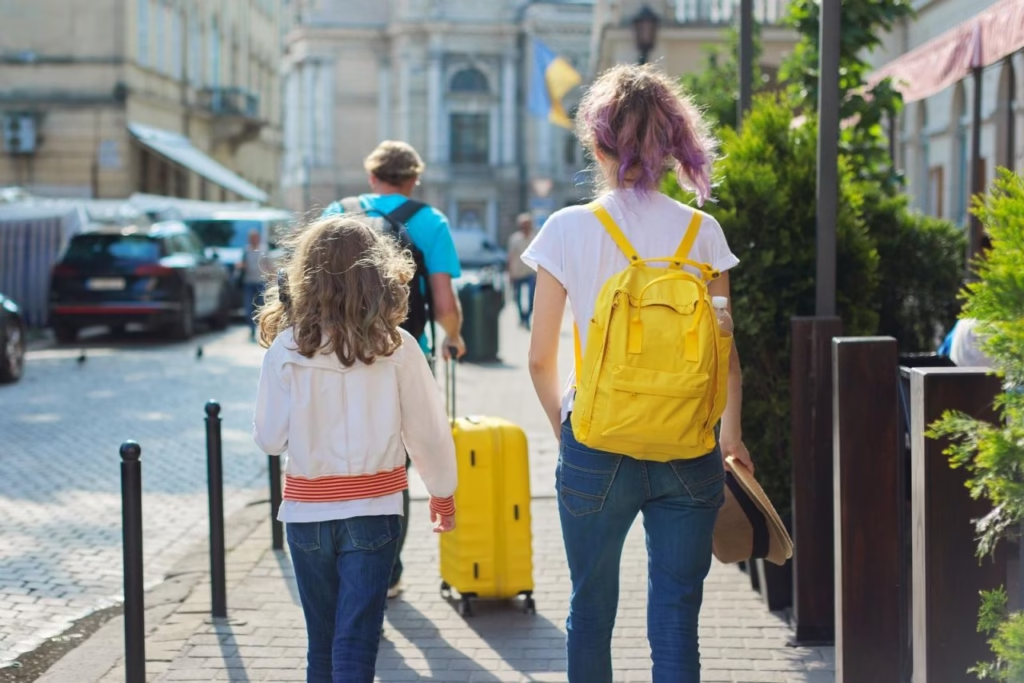Last Updated on
Switzerland is one of the safest countries in the world, offering a high quality of life, efficient services, and stunning natural beauty. For locals and expats alike, the country’s emphasis on law and order, coupled with its well-functioning infrastructure, creates an environment where safety and security are paramount.
However, as with any country, understanding potential risks and being prepared for emergencies is essential. This guide delves into the nuances of safety and security in Switzerland, providing actionable tips and insights for expats and travelers.
Safety and Security in Switzerland was originally published on allaboutswiss.com
Overview of Crime and Safety in Different Cities
General Safety in Switzerland
Switzerland consistently ranks among the safest countries globally. Its low crime rates, strong rule of law, and efficient law enforcement contribute to a secure environment. Violent crime is rare, and petty crimes such as pickpocketing and theft are the primary concerns for visitors and residents.
City-Specific Safety Insights
Zurich
- Crime Levels: Zurich is Switzerland’s largest city, and while it has a low crime rate compared to other global cities, it does experience petty theft, particularly in crowded areas like Zurich Hauptbahnhof (main train station).
- Safe Areas: The Old Town (Altstadt), Seefeld, and Enge are considered very safe neighborhoods.
- Tips: Avoid leaving valuables unattended, especially at nightlife venues.
Geneva
- Crime Levels: As an international hub for diplomacy, Geneva sees higher rates of pickpocketing and minor scams near major attractions like the Jet d’Eau and Gare Cornavin train station.
- Safe Areas: Carouge and Eaux-Vives are popular and secure neighborhoods for residents.
- Tips: Keep your belongings secure in crowded public areas.
Lucerne
- Crime Levels: This smaller, picturesque city experiences very little crime, making it one of the safest in Switzerland. Most issues are related to tourist theft near landmarks like the Chapel Bridge and Lion Monument.
- Safe Areas: The entire city is generally safe, including the historic Old Town.
Bern
- Crime Levels: As the capital city, Bern is very secure but can have occasional pickpocketing incidents near the Zytglogge Clock Tower or Aare River during peak tourist seasons.
- Safe Areas: Kirchenfeld and Breitenrain are among the safest residential areas.
Basel
- Crime Levels: Basel’s proximity to the French and German borders makes it slightly more prone to cross-border petty crimes, but it remains safe overall.
- Safe Areas: Grossbasel, near the Rhine, is a secure and popular area for expats.
Tips for Staying Safe as an Expat
Living in Switzerland as an expat is a privilege, but adapting to a new environment always involves challenges. Here are some tips to stay safe:
1. Protect Your Valuables
- Use anti-theft backpacks or bags with secure zippers, especially in crowded areas or public transport.
- Avoid flashing expensive items like jewelry, watches, or electronics.
2. Be Cautious with Personal Information
- Beware of phishing scams or fake emails claiming to be from Swiss authorities.
- Never share sensitive details like bank account numbers or ID information unless you’re sure of the source.
3. Learn Basic Local Etiquette
- Switzerland has strict rules and a high regard for lawfulness. Respecting regulations, such as proper waste disposal and quiet hours, fosters good relations and avoids conflicts.
4. Stay Aware of Travel Advisories
- If traveling outside your city, check local advisories for weather conditions, road closures, or specific risks in mountainous regions.
5. Use Reliable Transportation
- Public transport in Switzerland is highly efficient and safe. Use taxis or ride-sharing apps like Uber with verified drivers when needed.
6. Secure Your Home
- Always lock doors and windows when leaving your residence, even in safe neighborhoods.
- Install additional security measures like door cameras or smart locks if you’re in a standalone house.
Emergency Numbers and Services in Switzerland
Switzerland’s emergency services are prompt, reliable, and easy to access. Below is a list of essential numbers and what they cover:
- Police: 117
- Fire Brigade: 118
- Ambulance/Medical Emergency: 144
- European Emergency Number: 112 (works across all EU countries, including Switzerland)
- Poison Control Center: +41 44 251 51 51
- Rega (Air Rescue Service): 1414 (for mountain or remote area rescues)
- Swiss Roadside Assistance (TCS): 140
Tips for Using Emergency Services
- Always stay calm and provide clear information about your location and the nature of the emergency.
- For non-urgent medical assistance, call the medical helpline at 0844 33 66 33, where trained professionals can advise you.
Useful Apps and Tools
- Rega App: For immediate air rescue requests and location sharing.
- AlertSwiss: An official app that provides notifications about natural disasters, weather alerts, and public safety advisories.
Dealing with Common Expat Challenges
Living abroad comes with its share of challenges. Here’s how to tackle some of the most common safety-related issues for expats in Switzerland:
1. Avoiding Scams
While scams are rare in Switzerland compared to other countries, they do exist. Common scams include:
- Rental Scams: Fake listings on housing websites asking for deposits without viewing the property.
- Solution: Only use reputable real estate agencies and verify all details before transferring money.
- Phone Scams: Calls impersonating authorities asking for personal information or payments.
- Solution: Swiss authorities will never ask for sensitive information over the phone. If in doubt, hang up and contact the official organization directly.
2. Navigating Healthcare Emergencies
Switzerland has an excellent healthcare system, but it can be costly without the right coverage.
- Health Insurance: Basic health insurance is mandatory for all residents, covering general medical care and hospital stays. Ensure you’re enrolled promptly after arriving.
- Emergency Visits: For urgent care, go to the nearest hospital emergency room or call 144 for an ambulance.
- Pharmacies: Many minor ailments can be treated with over-the-counter medications. Pharmacists are knowledgeable and can provide advice.
3. Understanding Weather-Related Risks
Switzerland’s climate varies by region, and certain seasons bring specific risks:
- Winter: Heavy snow and icy conditions can make driving hazardous.
- Solution: Equip your car with winter tires and chains, or use public transport.
- Summer: Hiking and outdoor activities may expose you to sudden weather changes or dehydration.
- Solution: Always check weather forecasts and carry water, sunscreen, and appropriate gear.
4. Cultural Integration
Adapting to Swiss customs and culture helps build trust and rapport with locals:
- Learn the basics of one of the national languages (German, French, Italian, or Romansh) depending on your region.
- Participate in local events or join community groups to establish connections and learn the area’s nuances.
5. Managing Legal and Bureaucratic Issues
Switzerland’s administrative processes can seem daunting at first:
- Ensure you have the right permits (e.g., work or residency) and keep them up to date.
- Adhere to Swiss tax regulations and seek professional advice if needed.
Conclusion
Switzerland offers a safe and secure environment, making it a top choice for expats and travelers. By understanding local crime patterns, following safety tips, and being prepared for emergencies, you can enjoy all that this stunning country has to offer with peace of mind. From the bustling streets of Zurich to the serene lakes of Lucerne, Switzerland’s safety and efficient services ensure an exceptional experience for everyone.

Hi, I’m Laura — a travel writer with a thing for Switzerland and Central Europe. I write practical, down-to-earth guides that help people get the most out of their trips, whether they’re navigating mountain trains in the Alps or finding the best cafés in small Czech towns. I’m based in Zurich, but I’m often on the road, notebook in hand, chasing great views, good food, and local stories. My goal? To make travel feel less overwhelming and way more fun.

